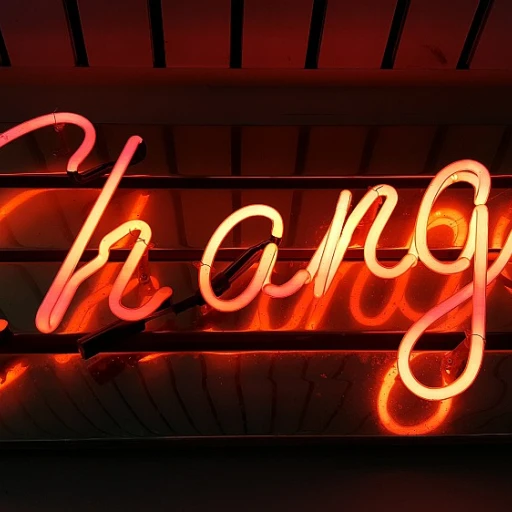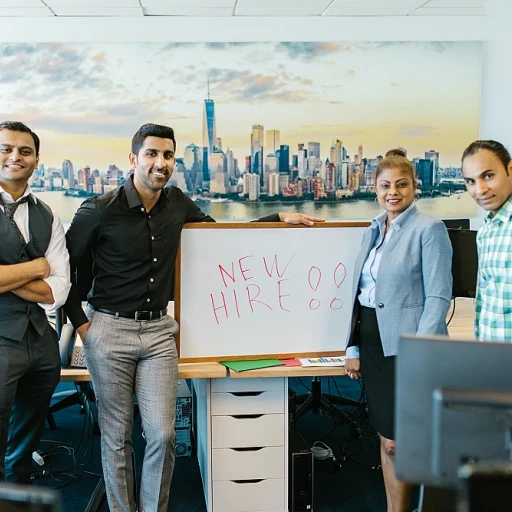
Understanding the Role and Responsibilities
Exploring Role Expectations
Embarking on a phone screen for a new position can be both exciting and nerve-wracking. A key component during this initial conversation with the recruiter is to pinpoint the crucial aspects of the job role and responsibilities it entails. This conversation will help set the stage for determining whether you are a good fit for the role as well as the company's needs.
Here are some questions that can steer this part of the discussion:
- Can you detail the primary responsibilities and expectations of this position? This comprehensive understanding ensures that your skills and aspirations align with the company's needs.
- What are the key performance metrics for this role? Knowing these helps you comprehend how success is measured within the company.
- How does this position fit into the broader team and organizational structure? This will help you see where you contribute to the overall success and how you will work with others.
Inquiring about these aspects during the phone screen allows you to align your expectations and may pave the way for a smoother interview process. It's also wise to discuss the scale of decision-making autonomy and boundaries you'll have within the role, which can often be a dealmaker in terms of work life balance and job satisfaction.
Finding harmony within a role’s expectations is essential for a fulfilling career path. Establishing clarity now will set a positive tone for the subsequent phases of the hiring process.
Company Culture and Values
Exploring the Company Environment and Core Beliefs
Understanding the company culture and its core values is crucial during your phone interview, as this will help you determine if the organization is a good fit for you. A company's culture influences how employees interact, communicate, and collaborate. To get a better sense of the work life balance and values, consider asking questions recruiter will find insightful about the company’s atmosphere and principles. Inquire about the team you would be working with, the management styles in place, and any diversity and inclusion initiatives the company promotes. Consider these points during phone screening:- Ask About Core Values: What are the company’s guiding principles? Understanding these will give you insight into what is valued in the hiring process and daily operations.
- Inquire About Team Dynamics: How does the team communicate and collaborate? Learning about the stroke of the company’s interactions can help you gauge compatibility.
- Work Life Balance Prioritization: Does the organization prioritize work life balance, and how is this demonstrated in their policies or employee benefits?
- Company’s Vision and Goals: Discuss the long-term aspirations of the company and how your role fits into these. This knowledge can provide perspective on your potential contributions and career growth.
Growth and Development Opportunities
Exploring Career Advancement: The Key to Growth
Understanding growth and development opportunities is crucial during a phone interview. Knowing how a company facilitates your career progression helps you align your professional goals with the job on offer. During your screen interview, some strategic questions can provide valuable insights:- How does the company support continuous learning and development for its employees?
- Are there opportunities for role advancement or departmental shifts?
- What does the career progression and promotion process entail at this company?
- Can you provide examples of how past candidates have grown and developed in this position?
Team Dynamics and Management Style
Exploring Team Dynamics and Leadership Approach
Understanding the dynamics of the team you might join is crucial in determining if the role is a good fit for you. During the phone screen, asking the recruiter about the team can provide insights into the work life and company culture. Here are some questions to consider:
- How does the team collaborate? – This question will help you understand the work environment and whether it aligns with your preferred work style.
- What is the management style of the hiring manager? – Knowing the management style can give you a sense of what to expect in terms of leadership and support.
- Can you describe a typical day for the team? – This question can reveal the daily responsibilities and how the team operates, which is essential for assessing the fit.
- How does the team handle conflict? – Understanding the process for resolving conflicts can indicate the maturity and cohesion of the team.
These questions not only demonstrate your interest in the position but also provide you with the necessary information to make an informed decision about whether the role and team dynamics align with your career goals and work life balance preferences.
Logistics and Next Steps
Logistics and What to Expect Next
As you prepare for the phone interview with the recruiter, it’s crucial to grasp the logistics of the hiring process. This understanding will help you better prepare and set clear expectations. You might wonder, what happens after you've asked your interview questions and hung up the phone? What are the next steps in the process?
To begin with, it's important to clarify the timeline of the recruitment process. Asking the recruiter about the expected time frame for decision-making can prevent unnecessary anxiety as you await their response. For example, you might ask, "How long do you anticipate the interview process will take, and when can I expect to hear back about the next steps?" This kind of question not only shows your interest but also helps manage your expectations.
Additionally, delve into what the subsequent stages will look like. Inquire if there will be multiple rounds of interviews, who you might be meeting with next, and what types of interview formats can be expected. Questions such as, "Who will I be meeting during the next stage, and what types of interviews will be conducted?" are pertinent. They provide you with insights and the chance to prepare accordingly, whether it involves speaking with the hiring manager or further team members.
Furthermore, understanding logistical details surrounding the interview process, such as whether the next steps will be virtual or in-person, the platform used for video calls, or any specific preparation needed for future interviews, can ensure you are fully equipped. This knowledge will help you present yourself as the best fit for the role.
Lastly, it never hurts to ask about the best way to follow up post-interview. Clarifying this will avoid miscommunications and reflect your professionalism. Perhaps a simple query such as, "What is the preferred method of communication for follow-ups?" will go a long way in ensuring all parties are aligned.
By addressing these logistical concerns during the phone screening, you’ll not only gain clarity but will also demonstrate your proactive nature to the recruiter. This will contribute significantly to determining whether the role is a good fit for you and facilitates a smoother overall interview process.
Compensation and Benefits
Exploring Compensation and Benefits
Understanding the compensation and benefits associated with a position is crucial when evaluating whether a job is a good fit for your professional and personal goals. During the phone screen, this can be a sensitive topic, but with the right approach, you can gain the necessary insights without hindering your candidacy. Here are some essential questions to consider:- What is the salary range for this role? This question helps set your salary expectations and allows you to assess whether the position aligns with your financial needs. It also gives you a benchmark for evaluating offers later in the hiring process.
- Can you provide details on the benefits package? Understanding the company's benefits can give you a clearer picture of the work life balance and support structures available, such as health insurance, retirement plans, and vacation policies.
- Are there any performance-based bonuses or incentives? Knowing about additional compensation can give you insights into how the company rewards hard work and results, and if these align with your career ambitions.
- What is the typical career progression for someone in this position? While this question touches on growth and development, it's also relevant to compensation, as advancements often come with increases in salary.
- How does the company support work-life balance? This will help you understand how the organization prioritizes personal and professional life integration, influencing your overall satisfaction with the job.













